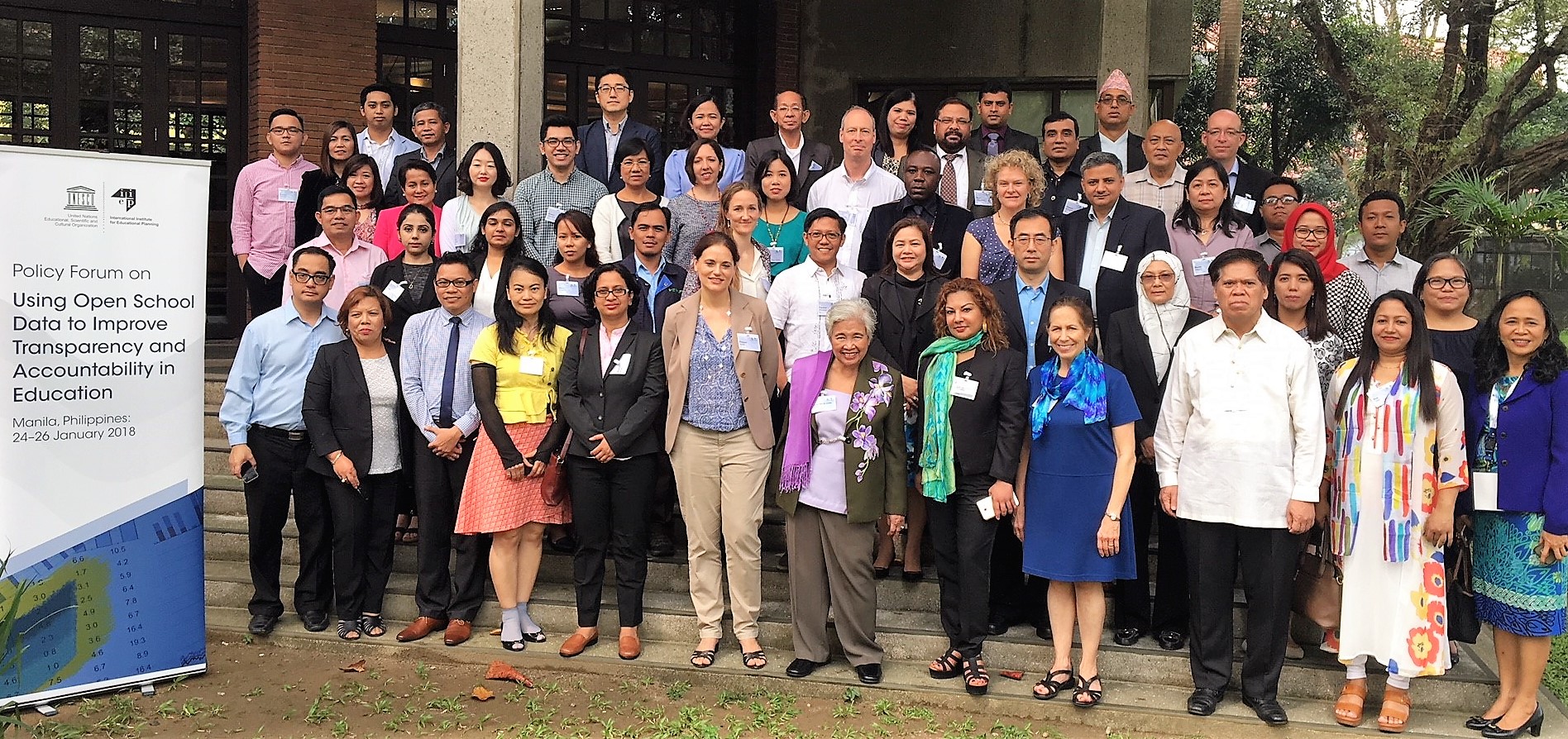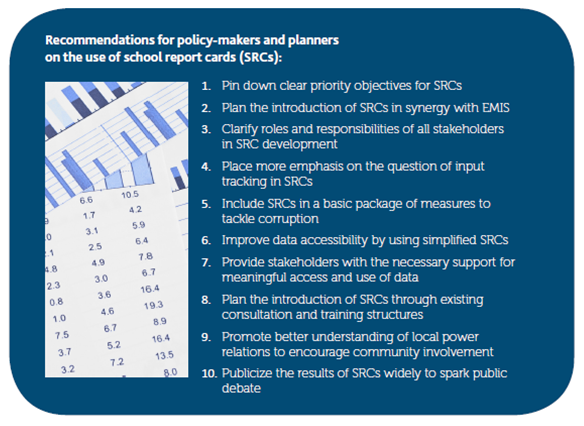Open school data
IIEP recently conducted a research project on the use of open data, and in particular school report cards (SRCs), to encourage transparency and accountability in schools.
Successful open data initiatives engage stakeholders, giving them the motivation and means to make positive changes within their education system and positively impact the level of transparency and accountability. The Institute examined various SRC models, looking at what conditions allow such initiatives to succeed.
The four year project combined desk reviews, field research, and surveys and it associated government officials, school actors and civil society. This included:
- A global desk review of 14 school report card initiatives, and two state of the art regional papers on School report cards in Sub Saharan Africa and
Latin America - A study tour to Australia, where decision-makers and high-level education officials from seven countries in the Asia Pacific were invited to examine what the My School open data initiative teaches us about improving transparency and accountability through public access to school data
- Six case studies on Asia and the Pacific, focusing on country-specific uses of primary and secondary school report cards (both government-led and citizen-led) to create a more transparent and accountable education system. They analyze variables such as the type of data made available, the level of data accessibility and its use by different stakeholders, also drawing from a survey of some 250 school-level actors in each case-country.
Access the case studies here:
|
|
|
|
|
|
|
|
Policy forum held in Manila
An International Policy Forum in Manila, organized in collaboration with the Department of Education of the Philippines, which took place from 24-26 January 2018. The forum gathered researchers and national policymakers and civil society representatives from 15 countries around the world.

Group photo from the 2018 IIEP Policy Forum in Manila, Philippines.
The main findings and conclusions of IIEPs research project, can be found in the book ‘Open School Data: What planners need to know.’ This book demonstrates that by stimulating expectations and hopes, open school data may well contribute to substantial changes in power dynamics within the education sector.
The results of the research have also been used to produce guidelines for educational planners and decision-makers. These Guidelines will be released in mid-2021.

For any queries, please contact Muriel Poisson









